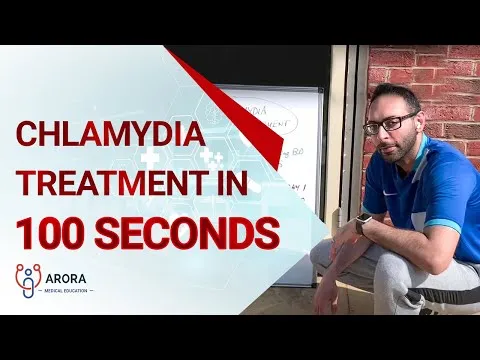
From the moment you are in school, you are supposed to be taught to identify sexually transmitted diseases. In fact, on the American continent, both in the North and in the South, the most typical ones are almost indistinguishably the same. Gonorrhoea, chlamydia, syphilis, HPV? Today we will talk about the appropriate treatment for the first two. Especially if you suspect you've been with someone who already carries one of these conditions, or if you've had unprotected sex, and you start to notice (or not necessarily) very vague symptoms, often shared with other non-sexual diseases. This is a guide, not a medical indication, I make it clear...
So why am I making this post? Mainly, to inform. Because both where I live (South America) and in many parts of the world, the subject of STIs is always taboo? Sadly, prejudices and accusations are the order of the day, and many times (not in all cases) we tend to be prejudiced and judge before clinically understanding the patient or the person behind a disease, which if not treated in time, can have considerable risks. Let us not forget that we are dealing with bacteria, and as such, they tend to develop extremely easily and quickly.
Additionally, the (bacteria) associated with chlamydia and gonorrhoea are not normally present in healthy patients. So the first suspicion will always have to do with sexual intercourse. And this is key to understanding the transmission of the disease. It is not necessarily unprotected sex (through barrier methods such as condoms) that makes the difference. These diseases can also manifest themselves through oral sex, which is an extremely pleasurable but highly risky practice in equal proportion.

In both women and men, symptoms of chlamydia and gonorrhoea usually appear within days or even weeks after infection. But it varies (and varies greatly) depending on the preconditions. That is, immunodeficiency, immune system and above all, the sexual health that each patient or human being maintains as an individual, and as a lifestyle. Therefore, if this is read by adolescents or by people who have practiced high-risk sex, with multiple partners, occasionally or regularly, and above all, if they suspect (either by seeing the physical symptoms, or by preacausion; hence the ‘prophylactic treatment’) my advice is to follow these recommendations.
Ceftriaxone is an antibiotic given by intramuscular injection (into the buttock muscle) that is synthesised to destroy the bacteria that cause gonorrhoea. However, it is also used to treat urinary tract infections and some strains of streptococcus. Generally, in suspected cases of either chlamydia or gonorrhoea, it should be supplemented in uncomplicated cases of both diseases with a single dose of ceftriaxone 1 g IM (intramuscular) and oral azithromycin (1 g) also in a single dose.
Why this combination of antibiotics? Basically, because the symptoms are extremely common, similar, and difficult to detect..... Also, both conditions tend to come together in most cases, and as a method of elimination and prevention, combined treatment is used to eliminate and attack the bacteria that cause these diseases. At the same time, the power of these medicines will not make a difference if the person who suspects infection is not able to regulate the triggers that have led them to suspect or suffer from these conditions.

Sexual health is fundamental, as well as common sense.... Which, ironically, tends to be the least common in these cases in particular. Now, when the person who has experienced symptoms, or suspicions about them, is treated medically (always through medical review, and avoiding self-medication, once again) they should communicate this to their current, previous and past sexual partners. It all depends on how long the person has suspected that they have contracted one or both diseases.
If sexually transmitted infections have been proven, the partner should also undergo treatment. Sexual abstinence, although self-evident, should be made clear to the patient so that he or she is not at risk of re-contamination. For the duration of the treatment, the patient should also maintain sexual hygiene, healthy sexual habits and encourage the use of condoms in all sexual relations. Avoiding, always from the measures of the use of reason, the action of giving or receiving oral sex.... This may cause the patient to relapse and become poorly cured or re-infected.
Ideally, the source of the possible transmission should be identified.... If this is impossible or if the source cannot be found, this treatment (explained above) should be applied, as well as to the partner, if there is one, and sex of any kind should be avoided for at least a couple of weeks. The exchange of fluids can make things worse, and can lead to a dangerous cycle of poor sexual hygiene and the spread of infectious diseases. We all know that sex is pleasure, but without a bit of intelligence and common sense, we could have a very bad time. I hope this post has been helpful.

